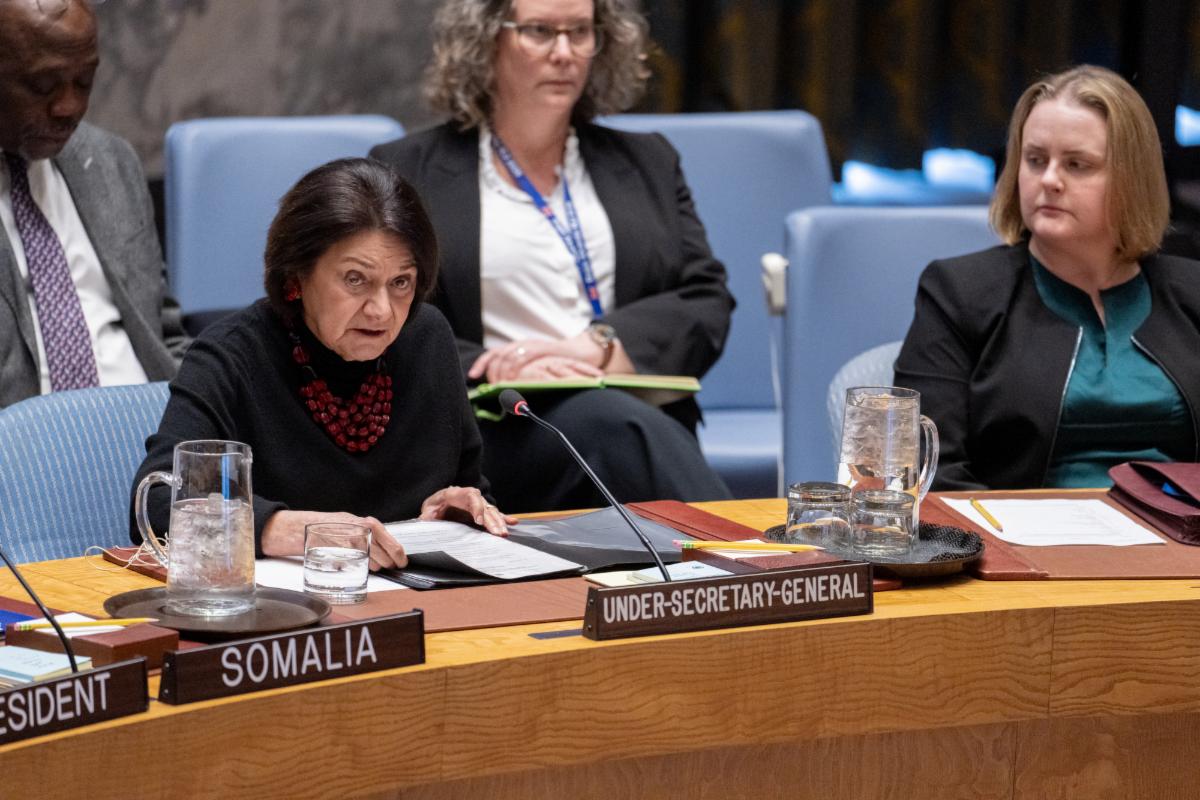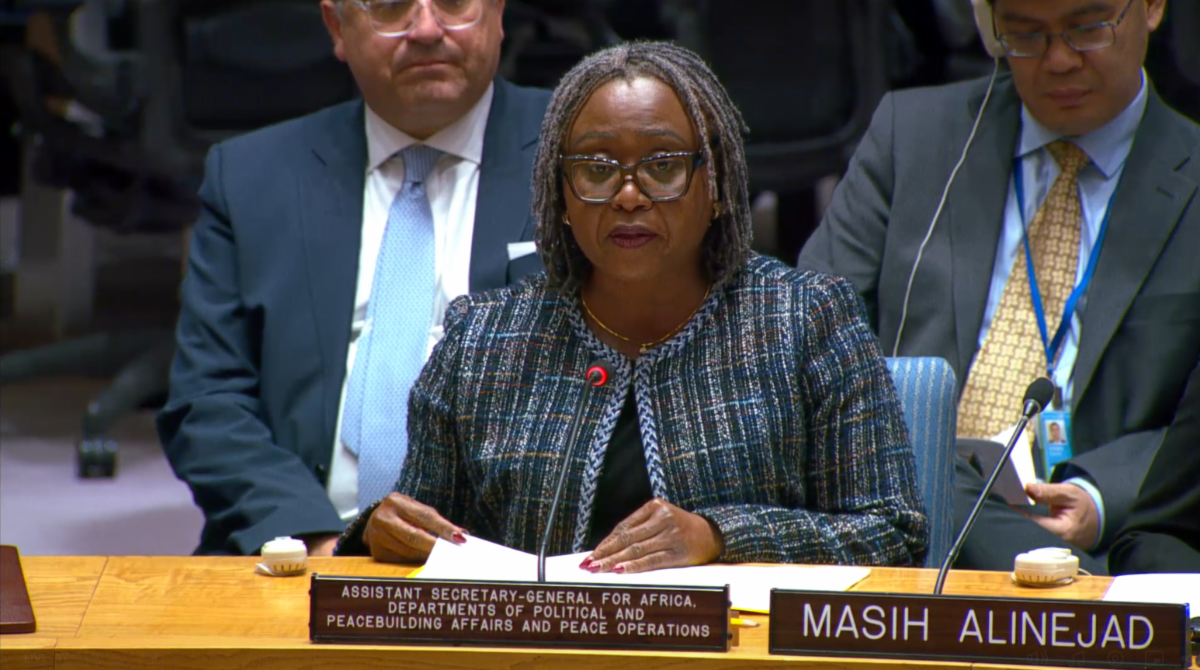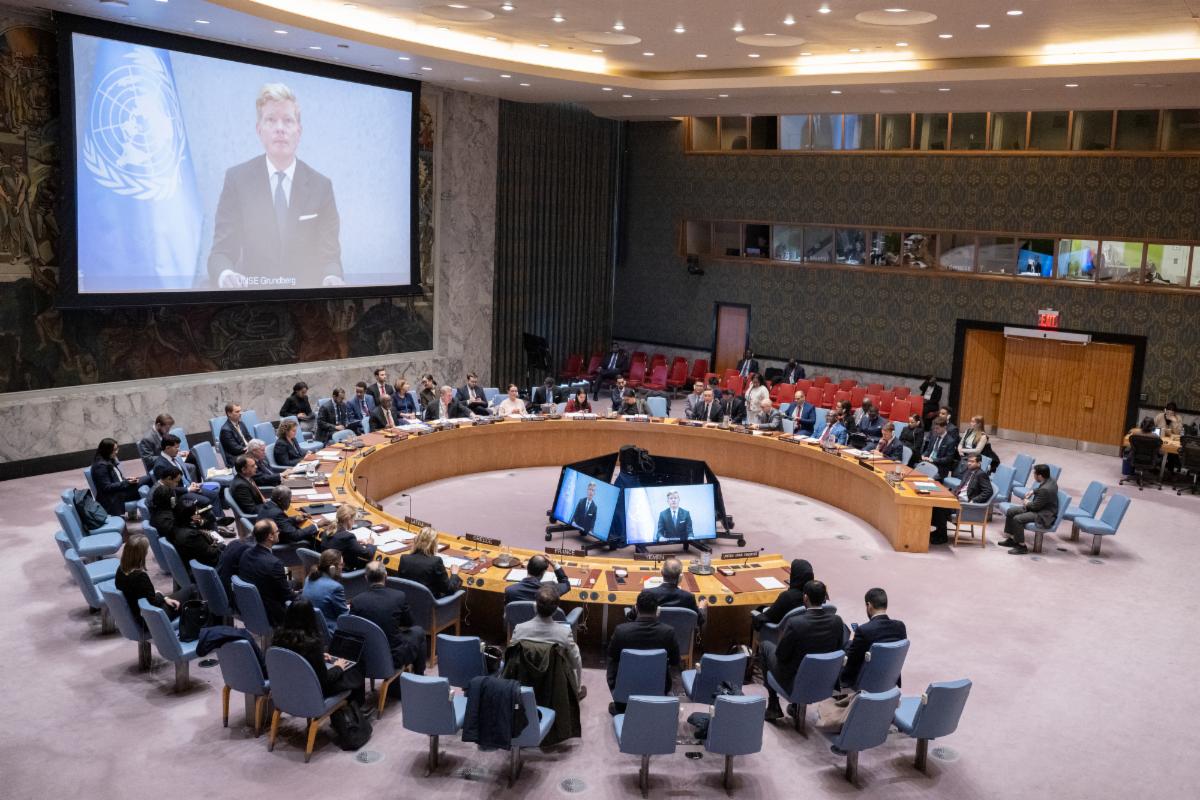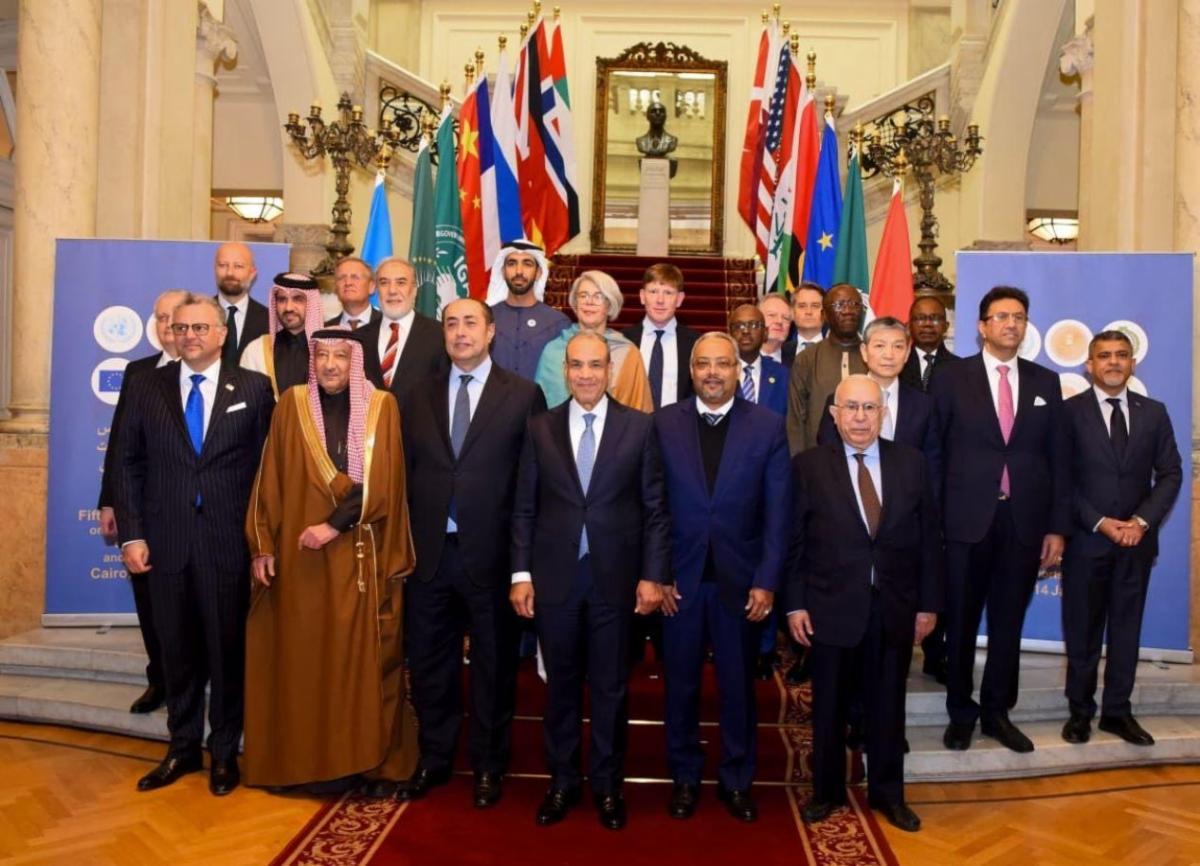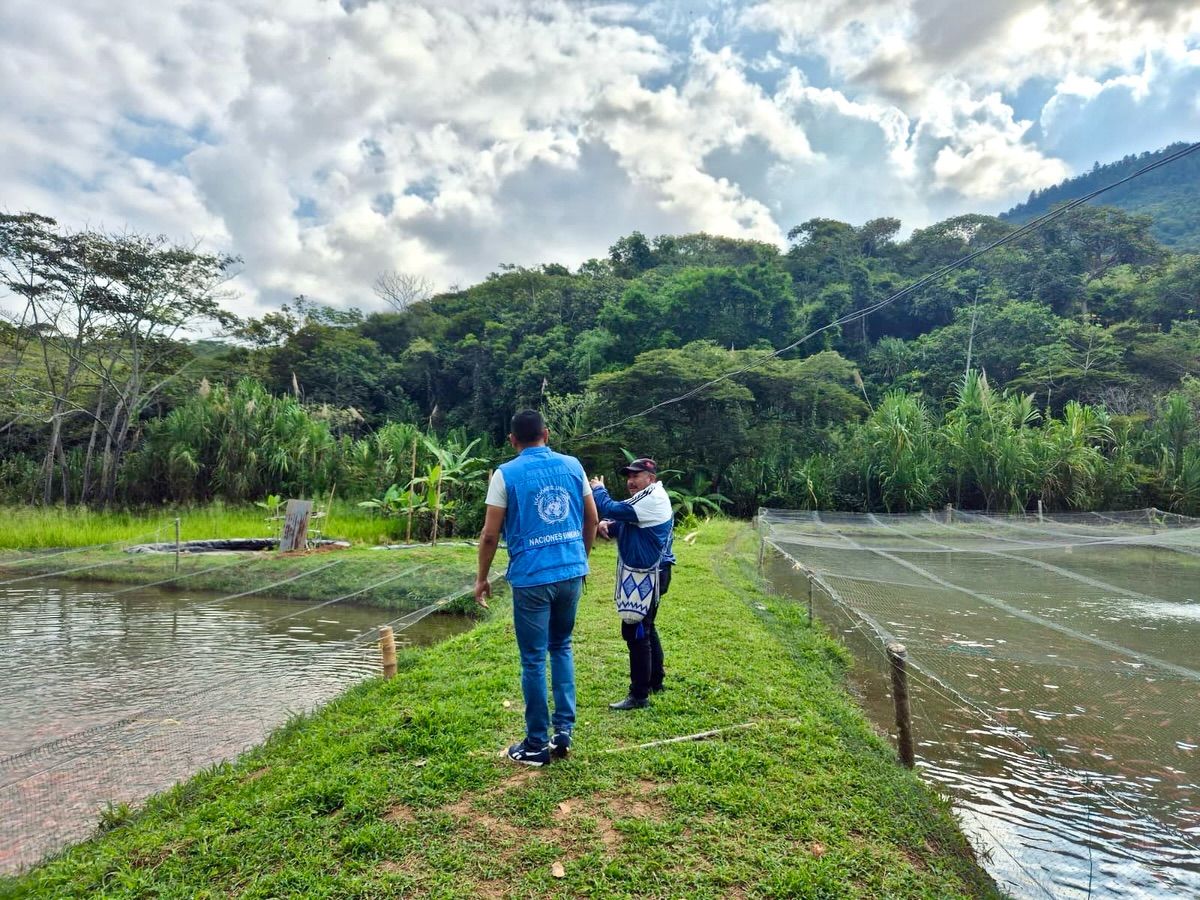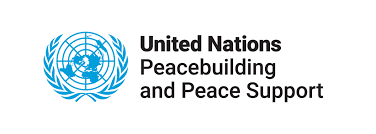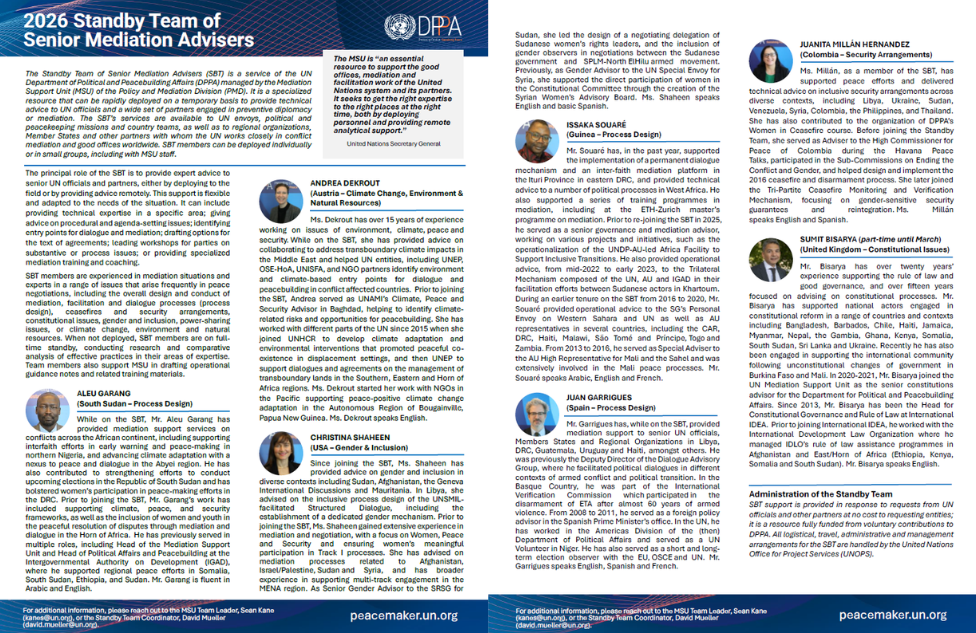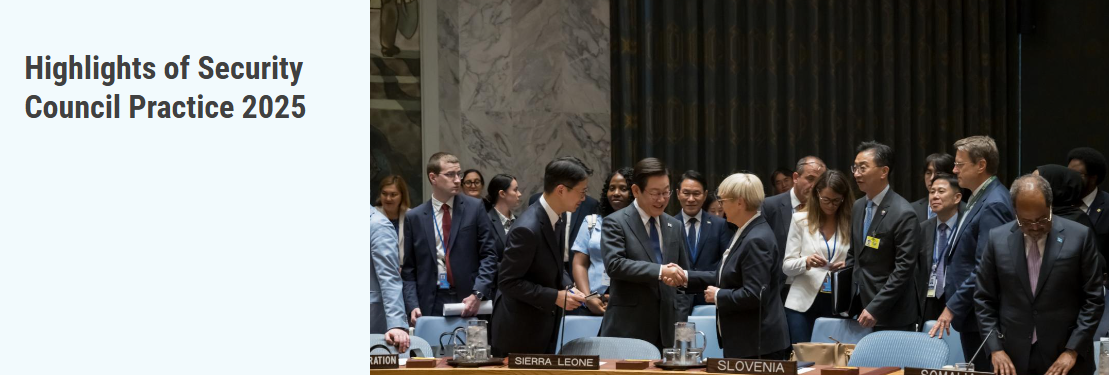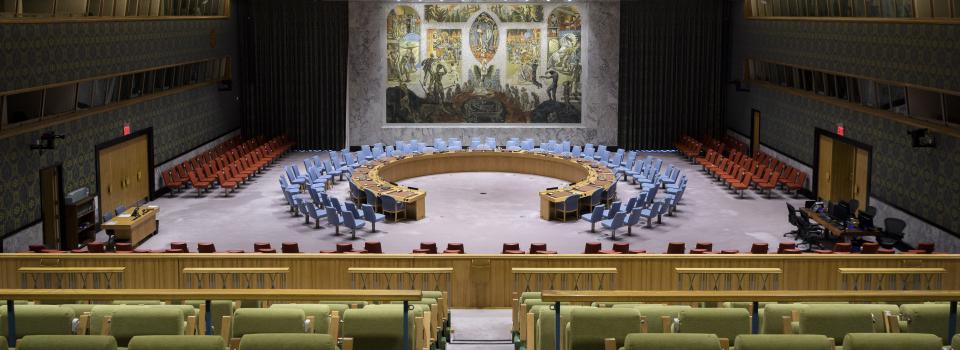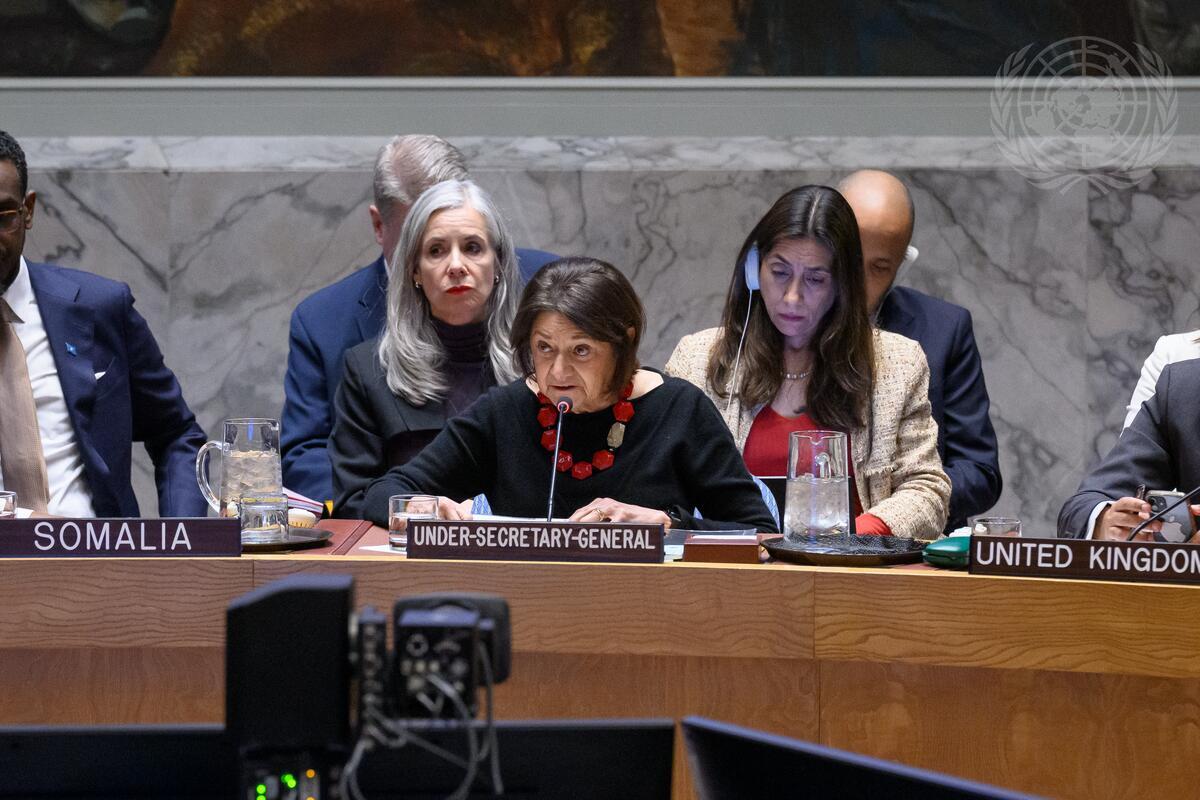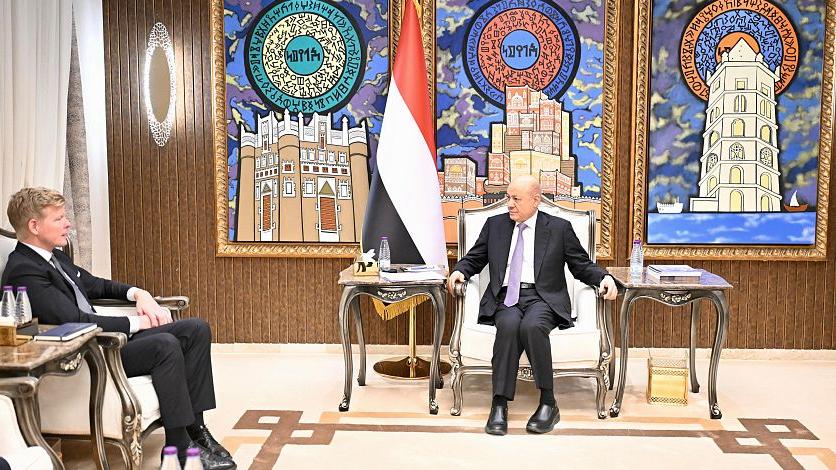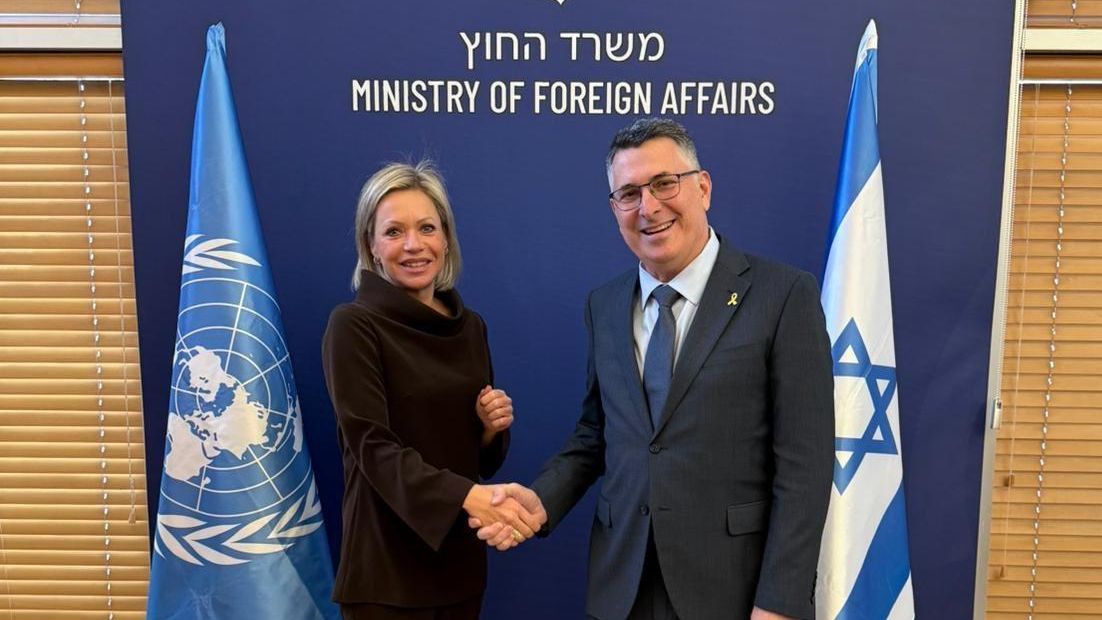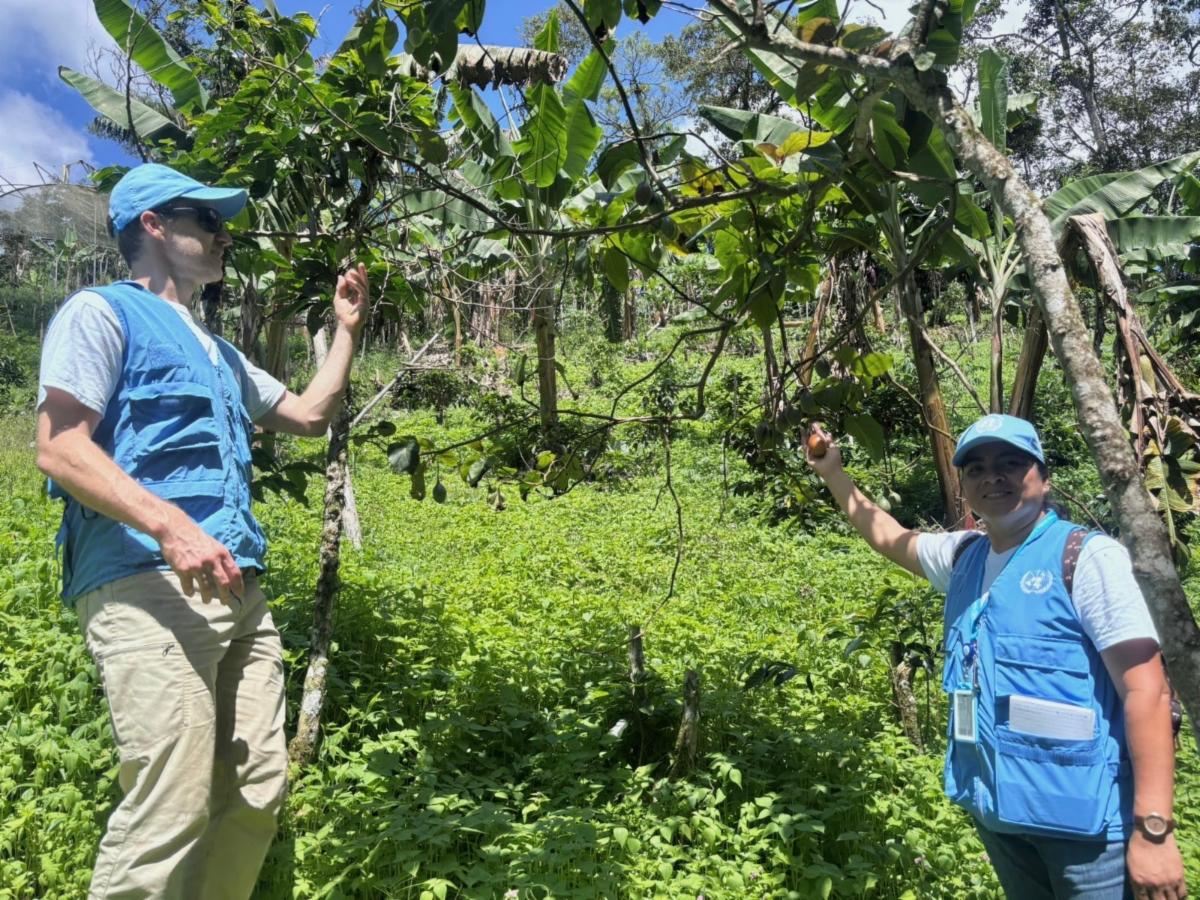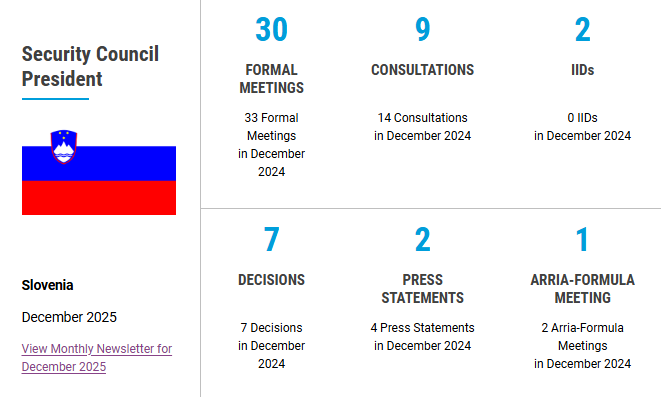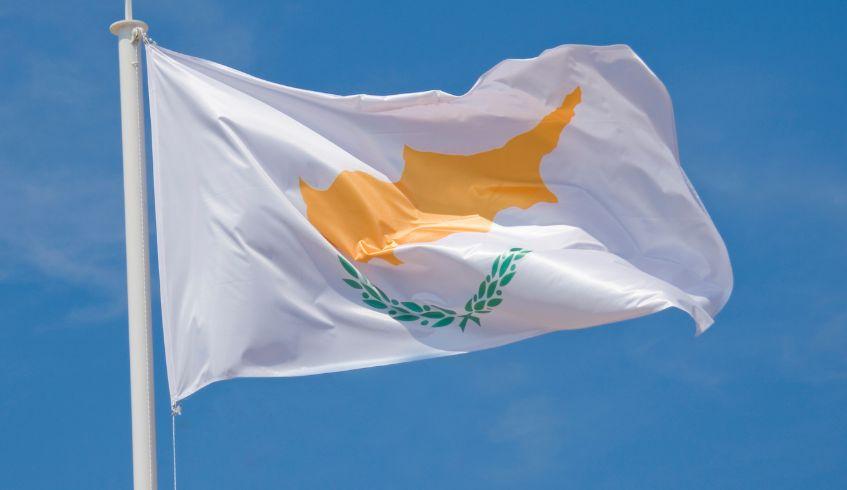Assistant Secretary-General Khaled Khiari’s Briefing to the Security Council on Syria
New York, 22 January 2026
Mr. President, members of the Security Council,
Our first meeting on Syria in this new year takes place against the backdrop of significant developments in northern and northeastern Syria.
While these developments have advanced rapidly in recent days and the situation remains fluid, let me briefly recap the key events of the past weeks. A further round of talks between the Syrian Government and the Syrian Democratic Forces to implement the 10 March 2025 agreement on 4 January did not yield progress.
Shortly after, clashes erupted in and around the SDF-controlled neighborhoods of Aleppo city - Ashrafieh and Sheikh Maqsoud. Following several days of intense fighting, and in the context of measures taken by the Syrian government to alleviate the impact on civilians, such as humanitarian corridors, reports from various public sources indicate that tens of thousands fled, most of whom have started to return, dozens were killed, hundreds were wounded, and persons are still missing.
On 11 January, the SDF withdrew east of the Euphrates to northeast Syria.
On 17 January, Syrian Government forces moved across the Euphrates and took control of broader swathes of territory from the SDF, with local populations in these areas also taking over of territory from the SDF in many instances.
With mediation from the United States and others international partners, on 18 January a “Ceasefire and Full Integration Agreement” between President al Sharaa and SDF leader General Mazloum Abdi was announced, to halt the fighting and ensure the full integration of all three northeast governorates under central government control. However, a subsequent meeting on 19 January between them failed to resolve implementation and fighting resumed.
On 20 January, the Syrian Presidency announced a “shared understanding” between the Government and the SDF, providing the SDF a four-day period for consultation, and the SDF expressed its commitment to a ceasefire.
Mr. President,
We are now two days into this critical period. As I speak, the situation on the ground remains very tense, with exchanges of fire and clashes between Government forces and the SDF in parts of Hasekeh governorate and also on the outskirts of Ayn al Arab, also known as Kobane - an SDF-controlled enclave where access is challenging, given ongoing clashes. Let me note that there is an alarming humanitarian and protection crisis, with an urgent need for all sides to ensure the protection of civilians and civilian infrastructure, and to ensure immediate and unimpeded humanitarian access.
The Secretary-General expressed his concern about the continuing violence and strongly called for full respect for international law and the protection of civilians, and urged the parties to continue dialogue and to move forward in good faith, working together to secure the implementation of all agreements.
We strongly appeal for both sides to immediately adhere to a ceasefire in line with the 18 January agreement, and engage in fleshing out and implementing the details of this latest understanding of 20 January swiftly and in a spirit of compromise, in order to ensure a peaceful integration of north-east Syria in support of Syria’s broader transition.
It is important also to note the recent Decree no. 13 announced by President al-Sharaa concerning the linguistic, cultural, and citizenship rights of Syrian Kurds within the Syrian state. This is a crucial issue for the future, and the decree is an encouraging initiative on which to build further through a genuinely inclusive process.
Mr. President,
Last month, on your visiting mission to Syria, ahead of the first anniversary of the fall of the Assad government, you witnessed firsthand the achievements, opportunities and challenges facing the Syrian people in this new chapter for a Syria moving toward equal citizenship.
The United Nations fully supports and encourages Syrian efforts to advance an inclusive political transition, equitable political participation by all components of Syrian society and meaningful participation by women to strengthen national cohesion and unity. And we look forward to the next milestones in Syria’s transition – the full formation of the People’s Assembly and the establishment of the Committee to draft the permanent constitution and the Constitutional Court— reflecting these principles.
We acknowledge the important steps the Syrian Government is taking to achieve justice for the victims of abuses and to combat impunity, both past and present. The Syrian people across the board are also asking for, and deserve more in this area. The United Nations looks to further support these efforts. They are critical for restoring and sustaining peace, justice and accountability.
Mr. President,
One year into this political transition, much has been achieved in post-Assad Syria. The fact that almost three million refugees and internally displaced persons have returned attests to that. Yet the country remains extremely fragile after 14 years of devastating conflict.
ISIL is still a persistent threat. As the Syrian government has joined forces with international partners in the Global Coalition Against Daesh to address this threat, we continue to encourage international cooperation in this area. It is vital that ISIL is not allowed to capitalize on the fluid situation in the northeast.
We share concerns about the presence of foreign terrorist fighters in Syria. During the fighting in northeast Syria, control of some of the detention centers for ISIL fighters switched from the SDF to Government forces, as did al-Hol camp in Hasakeh. There are indications that some detainees escaped. We appeal for full attention to be given to ensure that the transfer to the Syrian government of ISIL detention facilities still under SDF control is done in an orderly manner. Separately, the United States announced on 21 January its mission to transfer ISIL detainees from Syria to Iraq, with 150 ISIL members held in Hasakeh already transported to a secure facility in Iraq.
Mr. President,
Tensions persist along sectarian and ethnic lines often fueled by hate speech and disinformation. The wounds along Syria’s coast, in the north and in the south remain unhealed, with triggers all around to upset the fragile stability.
On 26 December, a deadly attack occurred at the Ali Bin Abi Talib Mosque in Homs, which the Secretary-General strongly condemned, emphasizing that attacks against civilians and religious sites are unacceptable. The Syrian Foreign Ministry condemned the attack and emphasized its commitment to counterterrorism efforts and to ensuring security for all Syrians. Subsequently, the Syrian authorities prevented an attempted attack on a church in Aleppo.
Mr. President,
We note with concern the unresolved differences and escalating rhetoric in Sweida governorate. Sporadic armed clashes between Syrian forces and local groups and militia are concerning, as are the reported intra-Druze tensions including detentions and assassinations in areas of Sweida outside of government control. The United Nations continues to urge the parties to engage with the ‘Amman roadmap’ of 16 September 2025 and implement confidence-building measures to restore trust and bring stability to Sweida.
Israeli incursions in southern Syria continue to undermine Syria’s sovereignty and territorial integrity. We welcome this Council’s extension of UNDOF’s mandate for another six months. Let me reiterate the Secretary-General’s call on Israel to refrain from violations of Syrian sovereignty and territorial integrity. Let me also appeal to the parties to respect the terms of the 1974 Disengagement of Forces Agreement and call for the withdrawal of Israeli forces from areas it entered after 8 December 2024. In this regard, we are encouraged by resumed contacts between Syria and Israel to seek mutually acceptable security arrangements.
Mr. President,
The United Nations remains committed to supporting Syria in charting a path to peace, stability, and prosperity in challenging domestic and regional environments. We look forward to deepening our engagement with the Syrian authorities to help ensure that this transition is inclusive, sustainable, and ultimately successful. And we look forward to continuing to engage widely among Syrians, including civil society, women’s groups, and all Syrian communities.
To that end, the Secretary-General has appointed a new Deputy Special Envoy for Syria, Mr. Claudio Cordone, who will advance the United Nation’s support for Syria’s political transition, and a new Resident and Humanitarian Coordinator, ad interim, Ms. Nathalie Fustier, to support Syria’s recovery.
We stand ready to serve as a trusted partner to Syria in advancing this transition in conditions of trust and legitimacy, fostering recovery, and promoting long-term stability. In this context, we seek to see the Office of the Special Envoy for Syria on the ground to engage in a structured and supportive way throughout this transition, to deliver these objectives more effectively and efficiently, ensuring closer engagement and better coordination of resources. We look forward to furthering the dialogue with the Syrian government in this regard.
Thank you, Mr. President.

